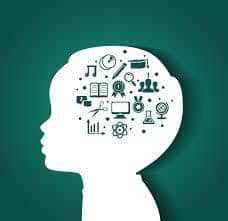
5 Scientifically-Proven Ways to Maximize Brain Development in Children
How a child’s brain develops?
During the first 6 years of life, children’s brains are developing at a MUCH FASTER pace than any other time in childhood and adolescence. From various research conducted in the field of brain development, it is widely agreed that from birth, a child’s brain develops in predictable patterns that are incredibly responsive to the environment. The brain is prewired to acquire skills such as language and logic, but all of its growth and changes are brought about by external stimulation. So whatever children are exposed to at home and in group settings (i.e. school, playgroups, et.c) during these critical early years lay the foundation for everything that will follow. MRI scanning also reveals the hidden evidence of how the developing brain responds to intellectual and sensory stimulation by laying down neural pathways and building complex networks. During these early years of life, children learn naturally, given the right environment, encouragement, and opportunities.

Research Proven Ways to Boost Brain Development in Children
So what do children really need aside from good nutrition and good sleeping during their first six years of life? Here’s what research tells us:
1. A loving, safe, and secure environment: Intellectual, emotional, and social development are interconnected. Brain development in children is optimized when children feel loved, safe, and secure. Cuddling and comforting lay foundations that help children deal with stress in later life.
2. Rich sensory experiences: Using sighs, hearing, touch, taste, smell, and movement, we can stimulate the nerve cells that are present in the brain from birth to fire up and build permanent connections. One excellent way to enrich sensory experiences is by listening to classical music from birth.
3. Lots of physical activities: The brain was “hand-made” through children exploring and manipulating things in their environment. Science bears this out: PHysical activity boosts the production of cells in the hippocampus, a part of the brain with a key role in memory and learning.
4. Talk, read, and sing: The size of a child’s vocabulary is a key predictor of success in school. From birth, babies are learning the sounds of their own language. Science has proven that talking, reading, and singing together enrich their vocabulary. Fun and engaging children songs and interactive children flashcards are great ways to incorporate singing and reading into their daily life.
5. Responsive parenting: The brain develops in a predictable way, but each brain and each child is unique. Every child needs parents who will watch for his cues, rhythms, and moods and respond to them appropriately.
Love Baby Mozart?
Follow us on Social Media!
Subscribe today to get exclusive advice on our latest parenting tips, brain development tools, music and songs updates, and much much more! Remember, it's 100% FREE!


